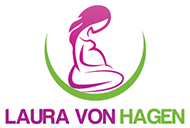Let’s talk morning sickness or in my case, all day sickness. I was nauseous the minute my little embryo started producing hCG, which means my nausea started even before my first blood test to confirm my pregnancy. I was just under four weeks pregnant and I woke up with the most intense queasy feeling in my stomach.

My First Trimester
I know something was up, I peed on a stick and saw a faint line. As I unpacked my grocery delivery that afternoon, I was repulsed by all the vegetables, I still have a hard time looking at eggplant! At first, it wasn’t so bad, and then I hit six weeks and things really ramped up. Often the nausea would wake me up in the middle of the night, and I would lie in bed at 4 am eating crackers, praying for it to go away. I remember one morning, I was curled up in the fetal position crying because the nausea was so intense that I was in physical pain. I had no idea how I was going to make it through the day. Somedays I was so nauseous, I even had trouble swallowing water. If I tried to eat something healthy, it just made the nausea worse and I would end up throwing up. I remember talking to my friend on the phone who also have horrible morning sickness and hearing her story gave me ‘permission’ to throw in the towel and give up on trying to eat healthily.
My Diet
My diet literally consisted of the following few foods during my first trimester:
- Breakfast sandwiches (I made my husband go to A&W one morning)
- Gluten-free pizza (pepperoni or cheese only, no vegetables)
- Annie’s GF Mac and Cheese.
- Grapes and pineapple
- Crackers, crackers and more crackers, especially at night
- Super salty Vietnamese food (pho, vermicelli and spring rolls are life)
Things that were normally staples in my diets, such as coffee and dark chocolate, were no more. I ended up going completely caffeine-free because even the smell of coffee made me nauseous. I did a LOT of take-out and grab and go sandwiches, because the smells of cooking food, or even the thought of trying to cook food, would make me feel worse. This meant buying breakfast sandwiches for lunch so that I could get through my patient load without throwing up (too much) at work. Now that my morning sickness has finally slowed down, I want to share a few tips that worked for me, and I hope will also bring you some relief.
How to Survive NVP
- When you wake up in the morning, get out of bed very closely and avoid any sudden movements- This is especially important if you are taking prescription Diclectin, as it can make you dizzy.***Yes, even me, an ND, took prescription Diclectin. I needed it to get through the day and ensure I was still providing excellent care to my patients. Don’t be ashamed if you need a prescription.
- Keep a morning sickness diary- This will help you track your symptoms and determine the best times to eat and drink when you are least likely to vomit. I discovered that on really busy days at work when I didn’t have an afternoon snack, my evening NVP would be out of control. My best week was when I sat down and had a bowl of Costco sea salt Himalayan chips every afternoon. Do what you gotta do.
- Eat as soon as you wake up- I kept a bag of crackers and almonds next to my bed that I would chew slowly in the morning. I would eat a few every morning before I even stepped foot out of bed.
- Make sure you have protein at breakfast- Scrambled eggs, nuts, protein bars, trail mix, yogurt, dry cereal, smoothies. Really anything you can keep down is better than nothing. Normally I purchase plain 2% Greek yogurt. I could not stomach this and bought the reduced-sugar vanilla yogurt as the touch of sweetness made it palatable.
- Stick to smaller more frequent meals- Larger meals can be a trigger for nausea and vomiting. Avoid gassy foods (broccoli, beans etc) as this can make matters worse.
- Don’t worry if you are unable to eat ‘healthy’- If you can’t have veggies, reach for fruit, if you can’t have fruit, reach for bagels! Focus on eating foods that sit well in your tummy and help you feel better.
- Avoid any foods with strong flavours or odours like fish, seafood or anything deep-fried- Dylan asked if he could buy mussels at the grocery store and I looked like I was about to murder him.
- When cooking, open all the windows in the kitchen to keep smells to a minimum.
- Ginger tea- Safe and beneficial. Steep covered for ten minutes before drinking with freshly squeezed lemon.
- Sit down while eating and chew food slowly.
- Make sure you stay hydrated- If you have vomiting and/or have diarrhea, I recommend using an electrolyte replacement. Drink water and other fluids away from meals.
- Carbonated drinks can also be very helpful- Try some natural Gingerale, club soda or diluted fruit juice and sparkling water.
- Make sure you take your prenatal vitamins with meals- If you are still nauseous, speak to your ND or primary care provider about switching to methylated folate (not folic acid) only during the first trimester.
Complimentary Treatment of NVP
- Ginger Root Capsules- Zingiber officinale, when taken in capsule form at 250 mg four times per day, has been shown to be effective for reducing the symptoms of NVP. I also kept a baggie of ginger chews at work and in the car. This helps me a lot when I was feeling nauseous during appointments and needed a distraction.
- Vitamin B6- This vitamin has also been shown to be an effective treatment for NVP. One double-blind, placebo-controlled study found that 25 mg every 8 hours times significantly reduce both the severity of nausea and the frequency of vomiting in pregnant patients.
- Acupuncture & Acupressure- Both acupuncture and acupressure have been shown to be incredibly effective for the treatment of NVP. Several well-controlled studies, including a Cochrane review, have that that either insertion or acupuncture needles or acupressure at specific points are more effective than placebo for reducing symptoms.
References
Viljoen, Estelle, et al. “A systematic review and meta-analysis of the effect and safety of ginger in the treatment of pregnancy-associated nausea and vomiting.” Nutrition journal 13.1 (2014): 20.
Sahakian, V. I. C. K. E. N., et al. “Vitamin B6 is effective therapy for nausea and vomiting of pregnancy: a randomized, double-blind placebo-controlled study.” Obstetrics and gynecology 78.1 (1991): 33-36.
Adlan, Aizura‐Syafinaz, Kar Yoke Chooi, and Noor Azmi Mat Adenan. “Acupressure as adjuvant treatment for the inpatient management of nausea and vomiting in early pregnancy: A double‐blind randomized controlled trial.” Journal of Obstetrics and Gynaecology Research 43.4 (2017): 662-668.
Smith, Caroline, Caroline Crowther, and Justin Beilby. “Acupuncture to treat nausea and vomiting in early pregnancy: a randomized controlled trial.” Birth 29.1 (2002): 1-9.

